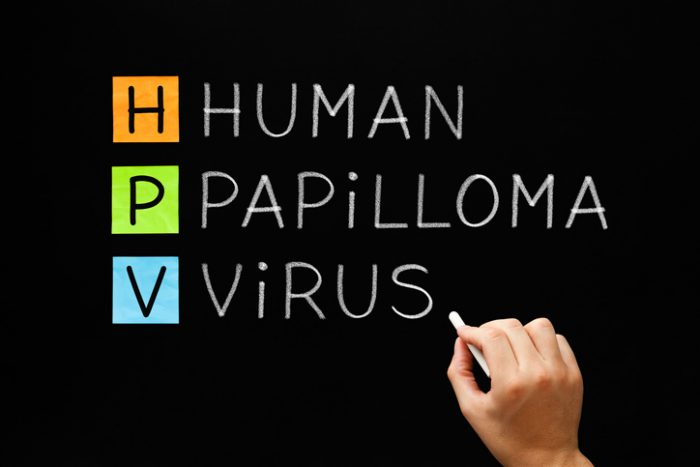
Human papillomavirus (HPV) is the most common sexually transmitted infection in the U.S. While HPV is not harmful in most cases, it can lead to serious health risks, which is why it’s so important to protect against infection. Take a closer look at the answers to some of the most frequently asked questions about HPV to learn more about the signs and symptoms, complications, and treatment options.
What Are the Signs and Symptoms of HPV?
Many people who contract HPV will show no symptoms of the virus. In fact, most don’t even realize they have it. Typically, the immune system naturally suppresses the virus on its own and it eventually becomes undetectable.
For some people, however, HPV can lead to concerning medical conditions. There are over 100 types of HPV. Contracting a low-risk type of HPV can cause genital warts, while high-risk HPV can potentially lead to several types of cancer, including cancer of the throat, anus, and cervix.
HPV is most closely associated with cervical cancer. In fact, two strains of the virus (HPV-16 and HPV-18) are responsible for nearly 70% of recorded cervical cancer cases around the globe. There are a number of other high-risk strains of the virus that are shown to cause the remaining 30% of cervical cancer cases.
Among women who contract a high-risk HPV on their cervix, around 10% will develop a long-lasting HPV infection that puts them at risk for cervical cancer. Changes to the cells called precancers can often be detected through regular screenings, providing time to seek treatment before cervical cancer developers.
How Is HPV Transmitted?
HPV is transmitted through skin-to-skin contact during sexual intercourse. Any type of contact with or between genitals, including oral, anal, and vaginal sex, can potentially transmit the virus.
Condoms do offer a basic level of protection against HPV. However, condoms don’t cover all areas of the body that can spread the infection, so they’re not 100% effective. Because HPV doesn’t usually produce noticeable symptoms, it’s important to note that the virus can easily spread from one person to another even if neither one shows signs of an infection.
How Is HPV Treated?
Most people who are infected with HPV don’t require treatment. The virus usually becomes undetectable within two years.
Genital warts caused by HPV may go away on their own. If they don’t, they can be treated with topical creams or a simple surgical procedure. Keep in mind that warts may reoccur even after they’ve been removed.
Natural HPV treatments are also available. For example, there are several natural supplements (such as vitamins and mushroom extracts) which can be used to boost the immune system in an effort to suppress the virus more effectively.
What Are the Risks and Complications of HPV?
High-risk strains of HPV can cause abnormal cell development, which may lead to cancer. If discovered early, precancerous cells and tissue can be removed using medical treatments, such as cryotherapy (in which the tissue is frozen and destroyed) or Loop Electrosurgical Excision Procedure (also known as LEEP, in which an electrical current is used to remove the tissue.)
If precancerous tissue is not effectively treated in time, cancer may develop. Recommended treatments vary, but may include surgery, chemotherapy, and/or radiation.
The CDC reports that each year, HPV causes approximately:
- 10,900 new cervical cancer cases
- 6,200 new anal cancer cases
- 13,500 new throat cancer cases
- 2,800 new vulvar cancer cases
- 800 new penile cancer cases
- 600 new vaginal cancer cases
Should I Get the HPV Vaccine?
In 2006, the FDA approved Gardasil, the first HPV vaccine, to prevent infection of four types of HPV: 6, 11, 16, and 18. In 2014, Gardasil 9 was approved by the FDA and became the preferred HPV vaccine due to its ability to protect against the same four strains as the original Gardasil along with five more: 31, 33, 45, 52, and 58.
These vaccines do not contain viral DNA or RNA, so there is no risk that they will cause disease. The vaccines are effective for both men and women. Currently, HPV vaccination is recommended for boys and girls between the ages of 11 and 12, though they can safely get it beginning at 9 years old.
Adults can also get vaccinated if they did not receive the vaccine as a child. The vaccine won’t be able to protect against any strains of the virus which an individual has already been exposed to, and it can’t cure or treat any infections they currently have. However, it is recommended to help reduce the risk of potentially becoming infected with other dangerous strains of the virus.
Sources:
- Cervical Cancer Statistics: Centers for Disease Control and Prevention, 2020.
- HPV and Men – Fact Sheet: Centers for Disease Control and Prevention, 2016.
- How Many Cancers Are Linked with HPV Each Year?: Centers for Disease Control and Prevention, 2019.
- Basic Information about HPV and Cancer: Centers for Disease Control and Prevention, 2018.
- The HPV Vaccine: Access and Use in the U.S.: Kaiser Family Foundation, 2020.








